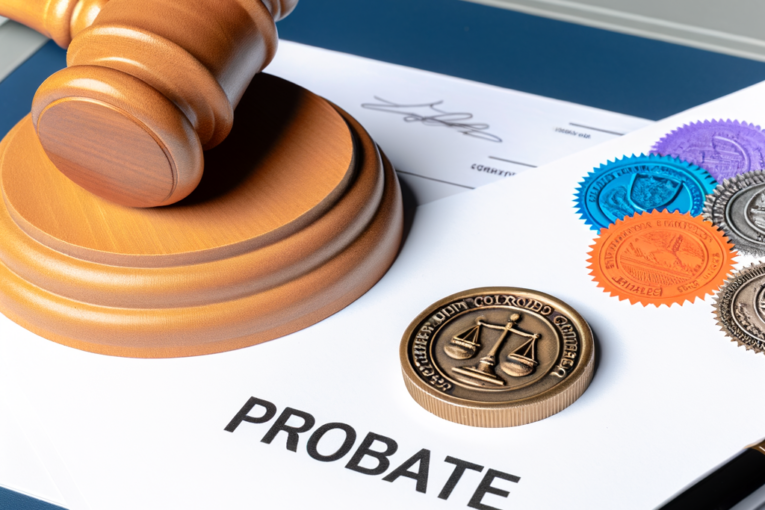Your Complete Guide to Navigating This Critical Element of Estate Planning
For individuals and families aiming to maximize wealth transfer to their beneficiaries and heirs, comprehending the federal estate tax system is essential. The estate tax exemption in particular serves a crucial function, allowing taxpayers to shield a substantial portion of their assets from taxation upon death.
However, navigating exemptions amid a complex web of tax codes can quickly become confusing. This comprehensive guide breaks down critical aspects of the estate tax exemption in plain terms, equipping taxpayers with actionable insights for planning purposes.
Current Estate Tax Exemption Thresholds
As of 2023, the estate tax exemption stands at the following amounts:
- $12.92 million for an individual filer
- $25.84 million for a married couple filing jointly
This means that estates below these thresholds are entirely exempt from owing any federal estate taxes. However, estate values above the exemption level are subject to taxation, with rates starting at 18% and progressing upwards based on brackets.
Having a grasp of the precise exemption figures is essential for taxpayers to assess their potential tax liability exposure and structure their estate plans accordingly.
Filing Status-Based Exemption Levels
| Filing Status | Exemption Amount |
| Individual Filer | $12.92 million |
| Married Filing Jointly | $25.84 million |
As the exemption is applied on top of the total estate value to calculate the taxable amount, being aware of the exact thresholds relevant to your situation empowers you to minimize overall liability through strategic planning.
Annual Inflation Adjustments
A common question surrounding exemptions relates to inflation, specifically whether the thresholds are static or increase over time.
To retain the real value of exemptions amid rising prices, the IRS applies annual cost-of-living adjustments based on inflation metrics. These minor adjustments, though formulaic in nature, guarantee that the exemptions’ intended purchasing power remains constant.
Taxpayers can generally expect slight upward revisions to exemptions year-over-year moving forward, barring any major legislative overhauls.
Lifetime Application of Exemption
A significant yet commonly misunderstood facet of the estate tax exemption relates to its lifetime applicability.
The exemption amount does not solely apply upon the death of the taxpayer. Rather, it has a cumulative lifetime application encompassing:
- Assets owned at the individual’s time of death
- Taxable gifts made during the individual’s life
This concept is profound yet frequently overlooked. Strategically gifting assets during one’s life allows taxpayers to effectively minimize their taxable estate value exposure upon death by leveraging exemptions during their lifetime.
The Impact of the Tax Cuts and Jobs Act
The passage of the Tax Cuts and Jobs Act (TCJA) in 2017 markedly transformed the estate tax exemption landscape in the United States.
One monumental outcome was a dramatic increase in federal estate tax exemption levels. However, the enlarged exemptions are presently temporary and set to sunset in 2026, barring further legislative intervention.
Exemption Levels Before and After the TCJA
| Year | Individual Exemption | Married Exemption |
| Pre-TCJA | $5.49 million | $10.98 million |
| Now, 2025 | $12.92 million | $25.84 million |
| 2026 Onwards | TBD Based on Future Laws | TBD Based on Future Laws |
The doubling of thresholds under the TCJA generates a window of opportunity for taxpayers to implement estate planning tactics fully harnessing the swollen exemptions before they revert in several years, which poses uncertainty for long-range strategizing.
Estate Tax Planning Approaches
Leveraging exemptions requires a multi-pronged approach:
Lifetime Gifting Up to Exemption Limits
Making irrevocable lifetime gifts to your desired beneficiaries that utilize every last dollar of your exemption limit allows you to reduce taxable estate exposure down the line.
Crafting trusts as tax vehicles
Trust vehicles, such as irrevocable trusts and ILITs structured to own life insurance policies, can shift assets outside of your taxable estate.
Regularly reviewing exemption thresholds and adjusting tactics accordingly is vital as legislative landscapes continuously evolve.
Estate Tax Rate Brackets
Beyond exemptions, comprehending estate tax rates and brackets is imperative for assessing possible tax liability.
| Taxable estate value | Tax Rate |
| $0 to $10,000 | 18% |
| $10,000-$20,000 | 20% |
| $20,000-$40,000 | 22% |
| $40,000-$60,000 | 24% |
| $60,000-$80,000 | 26% |
| $80,000-$100,000 | 28% |
Over $500,000 | 40% |
With a progressive rate structure, larger estates face higher marginal tax rates. Strategic planning is essential for avoiding unnecessary jumps into higher brackets.
Generation-Skipping Transfer Tax
Beyond standard estate tax, the generation-skipping transfer tax (GST tax) warrants awareness in scenarios where you plan to transfer wealth directly to beneficiaries two or more generations younger, such as grandchildren.
The GST tax aims to ensure estate taxation occurs at each generational level when assets transfer between generations. It kicks in for:
- Transfers to beneficiaries >= 2 generations below the transferor
- It applies on top of estate tax based on brackets.
- Exemption matches estate tax threshold
Specialized trusts can optimize multi-generational asset transfers despite GST tax.
Future Exemption Uncertainty
Given the temporary boost under the TCJA, projecting exemption trajectories involves guessing future legislative actions, rendering long-term strategizing complex.
Taxpayers must monitor policy proposals and budgets for clues into lawmaker intentions regarding the future of exemptions. Meanwhile, nimbleness must be baked into estate plans, as significant changes could rapidly balloon liability exposure if exemptions drop.
Pulling It All Together
As this guide outlines, mastering exemptions and associated estate taxes involves digesting many moving parts that interrelate in complex ways.
Engaging specialized estate planning legal counsel allows you to cut through the noise and receive tailored guidance catered to your unique financial situation. Estate attorneys adeptly navigate evolving laws and exemptions.
Depending on your assets, careful planning made possible by exemptions can significantly reduce estate tax liability. But continual fine-tuning of plans is imperative if laws shift. Revisiting your estate tax planning checklist during annual reviews and upon major life events allows you to preemptively adjust your strategy.
With meticulous preparation, exemptions can help preserve wealth for your beneficiaries amid turbulent legislative seas. But success hinges on understanding the many technical dynamics at play. Hopefully this guide has broken down core components into actionable knowledge as you chart the optimal course ahead.
Additional Resources:
- Internal Revenue Service (IRS) website: https://www.irs.gov/businesses/small-businesses-self-employed/estate-and-gift-taxes (Provides official information on estate tax laws and regulations)
- Congressional Budget Office (CBO) report on estate and gift taxes: https://www.cbo.gov/ (Offers insights on the economic effects of estate taxes and potential policy changes)
- American Bar Association (ABA) Trust and Estate Law Section: https://www.americanbar.org/topics/trustestate/ (Provides resources and information on estate planning for legal professionals)





